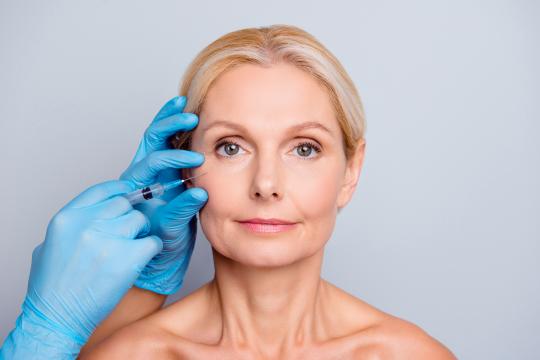Most women claim to have sensitive skin, but as it turns out, few women do. You might be thinking, “Wow, Jenny thanks for that scintillating bit of news and who cares if I’m wrong about my sensitive skin, it can’t hurt to be on the safe side, right?
I’m here to help you differentiate between skin sensitivity and sensitive skin. Truth is you could be doing harm. Self-diagnosing or a diagnosis by anyone other than a doctor, may mean missing out on amazing products or procedures that your skin could benefit from greatly, like those that slough off dead cells, which, if left alone can lead to breakouts, dullness, dryness or dare I say it, older looking skin. You may also be missing an underlying problem that might require medical treatment like Rosacea or Eczema.
Look, I’m with you. I’ve claimed to have sensitive skin for years - decades even, but I’ve found that the reactions I’ve had: itching, redness and even blotches have been due to a skin sensitivity not sensitive skin. Sensitive skin is usually exacerbated by things like sun exposure, wind, heat, cold, chemicals in products and other similar factors. Understanding this distinction and discovering your true skin type will open a world of possibilities in skincare.
Here are some facts and tips that will help you determine what you’re dealing with and how to proceed:
We Tend to Do Most of the Damage
We have more control over what irritates our skin than you would think. Common mistakes can cause reactions and sensitivity including over-washing, over-exfoliating, using products that dry out skin, using water that is too hot, scrubbing too hard, applying products that are known irritants too frequently, not allowing our skin time to get used to new products and too much sun exposure, to name a few.
How to Deal:
- Be kinder to your skin and avoid excessive procedures and use of products with common irritants.
- Avoid products with alcohol when possible.
- Be aware of common irritants and allergens like, salicylic acid, alpha hydroxy acids, retinoids, fragrances, formaldehyde, niacinamide (a topical form of the B3 nutrient), chemical peels, physical exfoliators, lanolin, parabens (and other preservatives that extend shelf life)
- If you use products that strip skin or are known to irritate skin like peels and acids, remember some irritation, redness and tingling is common (up to about 15 minutes).
- If you react to microdermabrasion, chemical peels or exfoliants, cut down on the frequency and/or intensity.
Listen to YOUR Skin:
- Allow your skin to get used to strong products over time; better yet, do a 24-hour patch test on your neck or behind your ear to test for sensitivity. You may find that starting slowly, once a week and building up helps or … you may find your skin can’t tolerate more than one application every 2 or 3 days.
- If you have a reaction to something, write down what it is and what the offending product’s ingredients are. You may be allergic to something in the product, which you’ll be able to weed out over time.
- If you find your skin is sensitive to fragrance, remember that fragrance-free and unscented are not equal. There can be fragrances used to mask other scents in “unscented” products.
- Be aware of environmental factors. Excessive cold, hot or moist weather can leave skin more prone to reaction… so can stress and hormones.
Rule out Something Else:
The best person to determine whether you have sensitive skin or not, is your doctor. A doctor should also be the one to diagnose Rosacea or Eczema. Both of those conditions can be treated and both can make your skin more sensitive. If those conditions are in remission your skin may not be considered sensitive!





